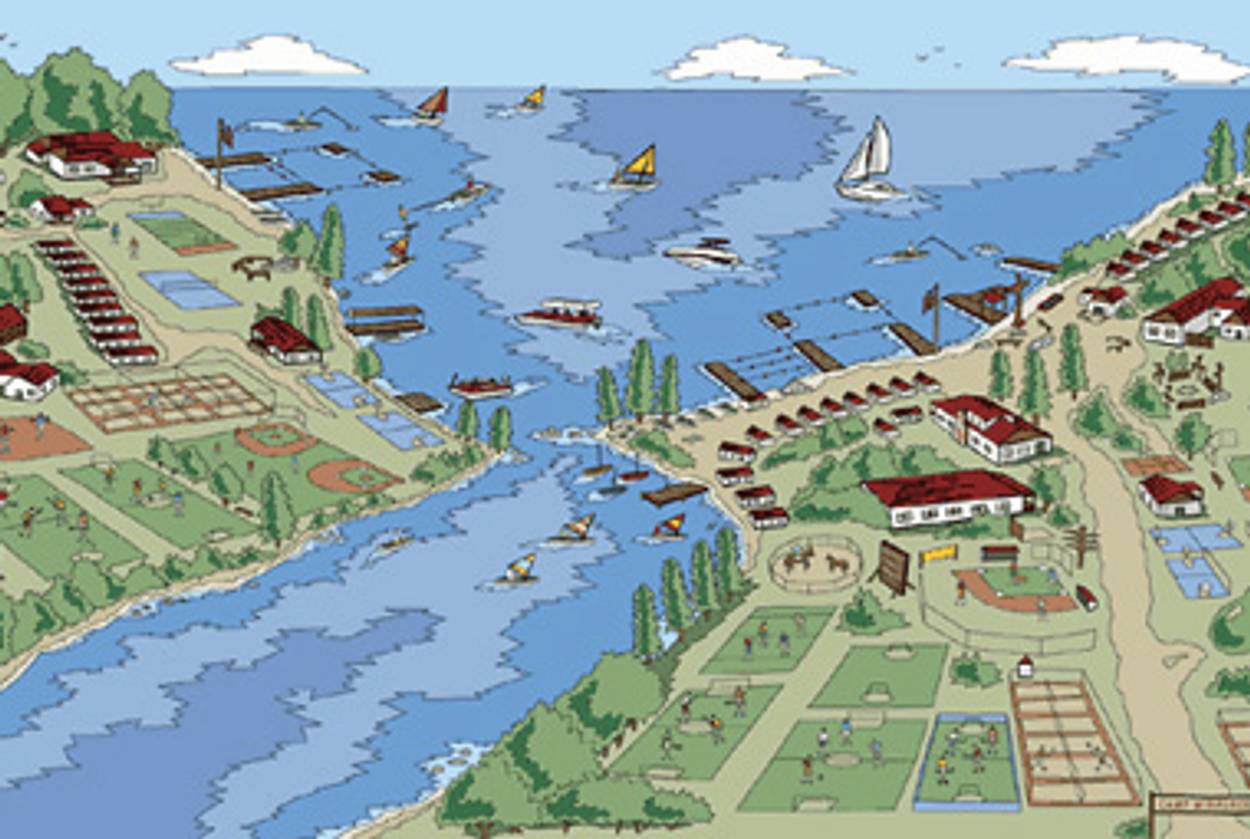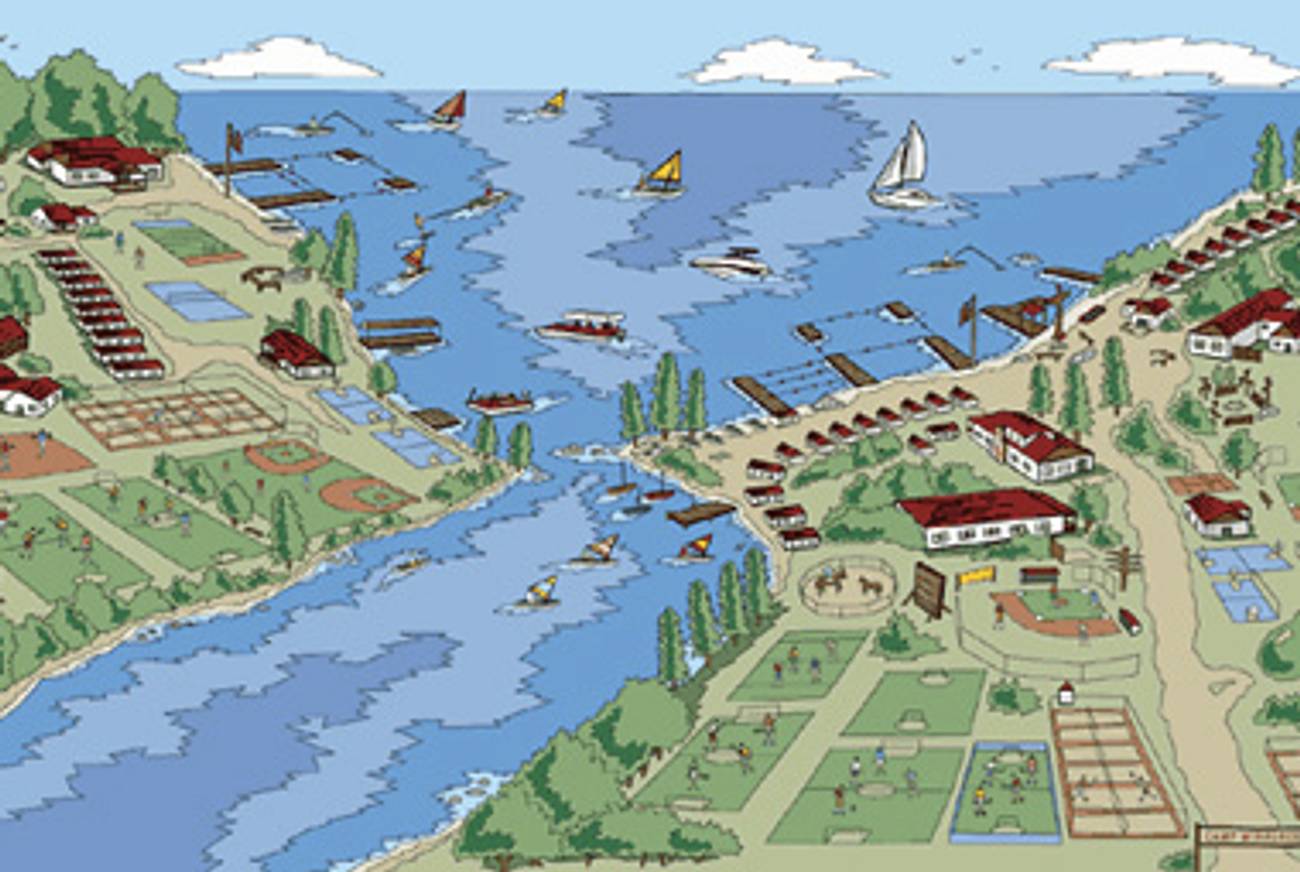Summer, Endless?
Camp’s increasingly challenged future




The New York Times had a terrific article (and accompanying video) yesterday on the obstacles, both social and economic, facing traditional overnight summer camps. The featured camp, Pine Forest, is an especially specific kind of traditional summer camp: Expensive; northeastern; owned and run by different generations of the same family; and, of course, implicitly (though not exclusively) Jewish. I can’t claim to know the sociological reasons behind it (other than the whole city-dwelling and upwardly mobile thing), but if you are a Tablet Magazine reader then you know that Jews disproportionately took and take to non-sectarian summer camp.
Pine Forest and its brother and sister all-boys and all-girls camps (they’re in the Poconos) are faring okay financially, but camp director Mickey Black—grandson and son of the founder and longtime director—finds himself beset by (to give a partial list) the rising cost of everything; an economic downturn that threatened to lower enrollment; a litigious atmosphere that requires extra vigilance, stress, and (again) money; a digitally dependent generation of campers; and a résumé-obsessed generation of parents for whom, as Black puts it, “It is not enough anymore to just go to camp to have fun and make friends and improve independence and self-esteem.” He adds, “Some parents want actual takeaways. They want to see skills, achievements, patches and certificates.”
That the Bobos in Paradise want to ruin even summer camp was by far the most infuriating and depressing part for me to read (I desperately wanted to blame this on the Boomers, but most of them have already sent their kids to camp; are these new helicopter parents members of—gasp—Generation X?). And what made me happiest was to learn that there are still places like Pine Forest, where the old rules apply: “No swearing or bullying. No cellphones, iPads or Internet. Parents can call twice and visit once.” Camp is about highlighting all the wonderful parts of childhood that must necessarily disappear when age makes them no longer wonderful (which is why single-sex camps are best, but I digress). Knowing that fewer camps understand this—and that the ones that do are expensive enough to make them the preserve of the upper-upper-middle class and up—is depressing.
This article is fruitfully read against parenting columnist Marjorie Ingall’s defense of Zionist summer camp published last week. “If American Jewish identity is to be something more than silver-and-blue wrapping paper instead of red-and-green wrapping paper in December,” Marjorie wrote, “Zionist summer camp can be a parent’s best ally.” I’m thrilled that Marjorie has found this. But I also swear that my time at Camp Winaukee, a Jewish-in-everything-but-name, family-run (sorta—don’t get me started), century-old camp in New Hampshire was integral to my conception of an American Jewish culture that definitely consists of more than Hanukkah presents. Here, the Pine Forests and Winaukees and Firewoods are getting squeezed in yet another way. It is not so difficult to pass on specifically Jewish tradition if you are all explicit about it. But how is a thoroughly Jewish yet insistently non-sectarian institution—whether a camp, or even, say, an online magazine—to deny itself the crutch of ideology and still carry the flame forward into an ever more melted pot?
When S’Mores Aren’t Enough: The New Economics of Summer Camp [NYT]
Related: In the Zionist Camp [Tablet Magazine]
Marc Tracy is a staff writer at The New Republic, and was previously a staff writer at Tablet. He tweets @marcatracy.